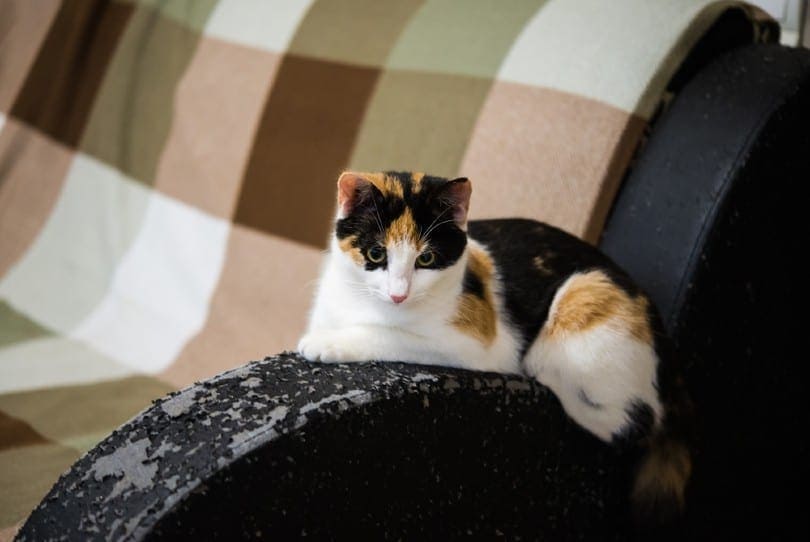How Many Cats Can You Own in New Jersey? Important Info for Owners

Updated on

Click to Skip Ahead
In New Jersey, different laws apply to different areas regarding cat ownership. Before you pack up your feline group and head to this state, let’s look at what the laws say in some of the areas.
Trenton, New Jersey
The state’s capital, Trenton, doesn’t place an exact number limit on the number of cats you can own. Of course, this can vary depending on your landlord’s rules and HOA laws.
The limit on the number of cats you own is based on whether they are a public nuisance. This means your neighbors should not be inconvenienced by the presence, sounds, and odors of your cats. It also means your cats should not pose a danger to other people or their animals.
The cats you keep should fit into your home with adequate space for each animal. They should all be sheltered from the elements and not allowed to roam or cause damage to other people’s property. If your neighbors feel that your cats are causing them an unreasonable amount of distress, they can report you and claim that your animals are a public nuisance.
If you live in Trenton, keeping a reasonable number of cats contained inside your home should not be an issue.

Camden, New Jersey
In Camden County and the city of Camden, there is a limit of three cats per household. Each cat must be licensed. Licenses for spayed or neutered cats are $15 each. For unspayed and unneutered cats, the fee is $20 each.
Newark, New Jersey
Every cat over 6 months old in each household must be licensed. The fees are the same as Camden. There is no listed restriction on the number of cats owned, but they must be licensed and have their tags on their collars if they are allowed outside.
Hawthorne, New Jersey
Each household cannot have more than five cats over 6 months of age. People breaking this rule can be fined up to $100 each time they are reported.

Norwood, New Jersey
In the Borough of Norwood, you are allowed to keep six pets total. This means six dogs, six cats, or a combination of dogs and cats equaling no more than six. Each animal must be licensed.
Leases
In New Jersey, most leases include a two-cat limit per unit rented. The cats must be kept inside and not allowed to roam freely. The rule will vary depending on the landlord and the specific rules for each building.
If you own your home, check with your local animal control laws and any HOA association rules to see the number of cats you can legally own.
Other Cat Laws In New Jersey
Feral Cats
Under New Jersey law, feral cats are not considered strays and will not be impounded. These cats are managed in colonies. Feral cats are unsocialized with humans and have lived outdoors since birth. Some cats were family pets that reverted to a feral state once they found themselves outdoors. Most of these cats cannot be touched by people. They live outdoors where they can continue to reproduce and spread diseases.
To prevent the cats from doing these things, feral cat colonies have been established and are protected under the law. These cats are spayed and neutered, vaccinated, and medically checked to make sure they don’t pose a health risk to other cats or people.
Groups of volunteers tend to these cats daily. They are provided with food, water, and shelter. If the cats look sick or injured, they are trapped and taken to the vet for treatment.

Microchips
A microchip is implanted between a cat’s shoulder blades using a syringe. The chip is about the size of a grain of rice. It is Radio Frequency Identification Device (RFID) that contains an identification number. When an RFID scanner is used on your cat, this number is read and can be entered into a database that holds your information. The cat’s name, your name, your address, and your telephone number will all be discovered so that your cat can be returned to you if they ever get lost.
The law in New Jersey does not dictate that all animals be microchipped. It does, however, state that the first thing any shelter, humane society, veterinarian, or police station does when they take in a lost or surrendered animal is scan them for a microchip to possibly find their owner.
This can be lifesaving for your animal, so while microchipping is not a law, it is a strong suggestion for every pet owner.
Evacuation
In the event of an emergency that calls for an evacuation, you can board public transportation with your cats. This is not permitted normally, but you can rest assured knowing that your cats will be able to accompany you to safety if necessary. The rules state that each animal must be secured in a carrier or on a leash.

Fair Housing Act
In January of 2020, updates were made to the Fair Housing Act for people seeking to have assistance or support animals as accommodations. This can make it possible for a person with a disability who relies on an animal for assistance, either physically or emotionally, to own an animal not regularly permitted in their housing. Proper documentation is needed for this to occur. You also need documentation from a doctor stating why the cat is needed for support. If cats aren’t allowed where you live, they may be able to bypass those rules if they are required for assistance in your daily life.
Conclusion
Many places in New Jersey don’t have specific limits on the number of cats you can own. In most areas, you are required to have licenses for your cats and keep them up to date on their vaccinations.
In other areas, there are limits to the number of cats you can own. You can be fined if you exceed this number. You can also be fined if your cats are roaming freely outdoors and causing problems for your neighbors. Having nuisance animals is against the rules in some locations.
If you require a cat for emotional assistance or any other type of service, you may need to fill out the proper documentation to keep them. If your housing doesn’t allow cats, statements from your doctor and a completed application may be necessary to allow you to live in your home with a support animal.
Related Reads:
Featured Image Credit: Joanna22, Shutterstock













